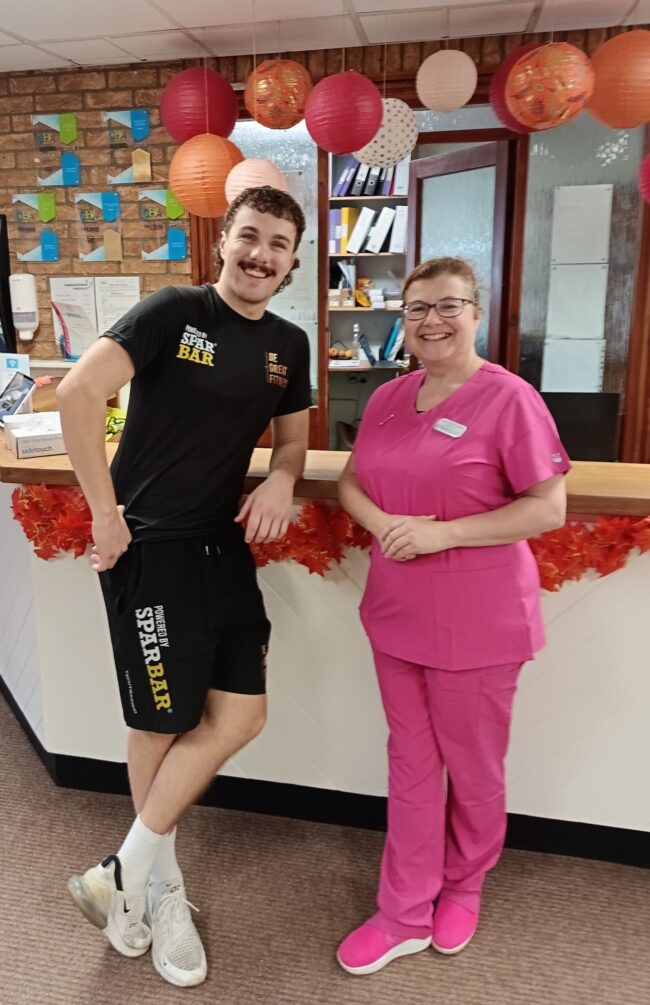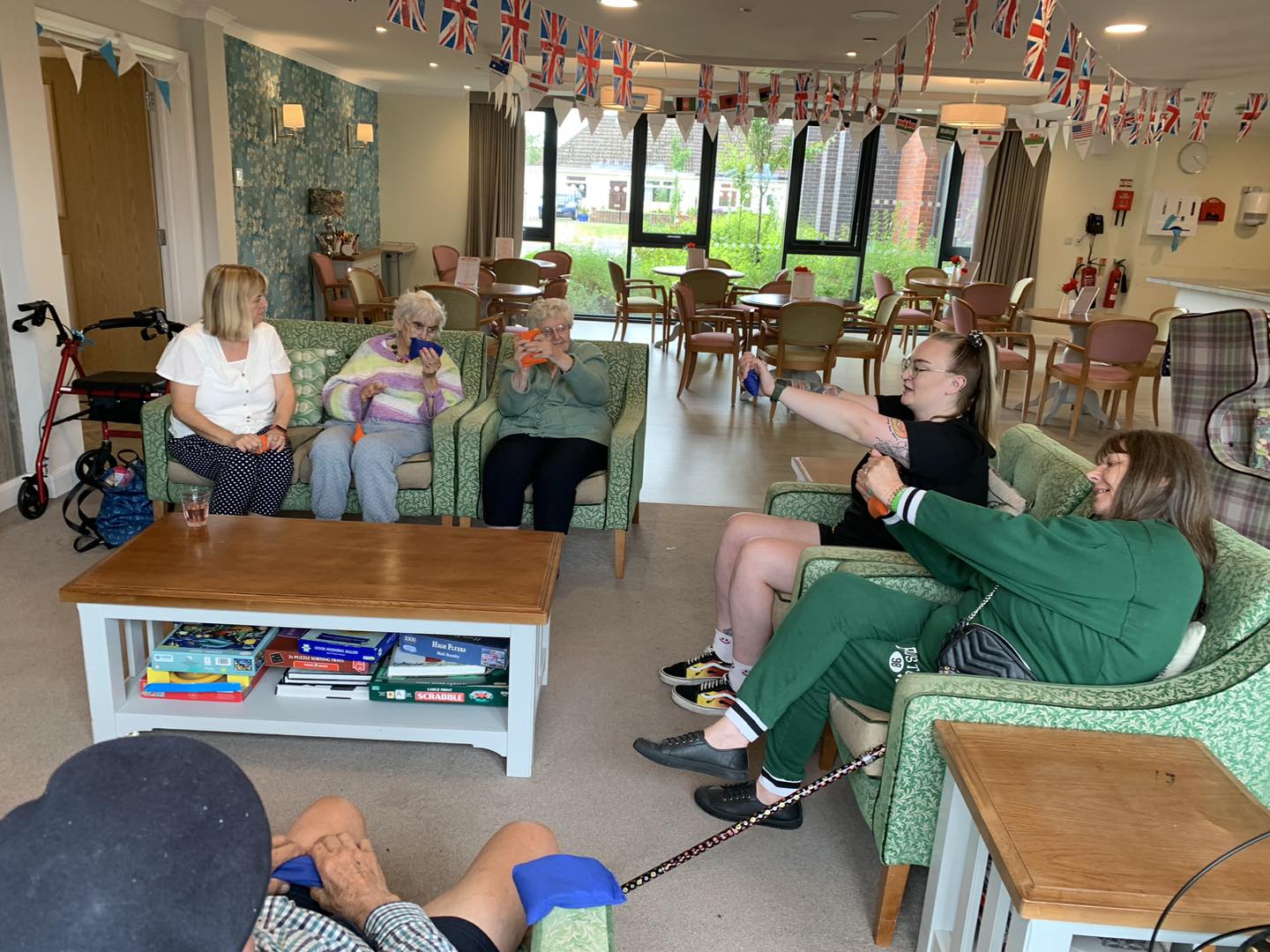Residents from Meadows Park Care Home Enjoy Uplifting Day at The Potting Shed
Residents from Meadows Park Care Home, Louth enjoyed a wonderful day out...
Learn more
15 September 2025
At Tanglewood Care Homes, our commitment has always been to place our residents at the heart of everything we do. With over 30 years of experience in residential care across the Midlands and the North of England, we understand that wellbeing extends beyond physical health; it also encompasses emotional connection, confidence, purpose, and community. Our latest collaboration with award-winning expert in adaptive exercise for seniors, Bailey Greetham-Clark of Be Great Fitness and Care England has reinforced this philosophy, demonstrating how inclusive and adaptive exercise can transform the lives of older adults.
We are proud to announce the publication of a new report, “From Inactivity to Independence: A Fitness Approach for Older People in Adult Social Care,” which highlights the transformative impact of regular physical activity in care settings. This report, a joint effort with Care England and Be Great Fitness, is a testament to the profound effects of integrating meaningful movement into daily care. The findings are based on the partnership between Be Great Fitness and our homes, a partnership that has been in place since August 2024 and has exceeded our highest hopes.
The UK’s population is ageing, with projections indicating a 7.3% increase from 67.6 million to 72.5 million between mid-2022 and mid-2032. This demographic shift places increasing pressure on health and social care services, making it more critical than ever to ensure that these added years are lived in good health and with a strong focus on independence and quality of life.
One of the most serious yet under-recognised outcomes of inactivity is deconditioning, a process where physical function rapidly deteriorates due to prolonged immobility. Deconditioning can lead to weakened muscles, reduced balance, and a loss of bone density, making individuals more vulnerable to illness, falls, and hospitalisation. A sedentary lifestyle, even over short periods, can quickly cause a decline in health, independence, and quality of life. The COVID-19 pandemic further exacerbated this issue, as many older adults with long-term health conditions stopped their usual physical activities and have been slow to resume them. This has increased the risk of muscle loss and reduced fitness, which can lead to more falls or worse. This is particularly relevant when considering how to choose a care home that prioritises resident wellbeing.
However, there is hope. The report highlights that if all older adults increased their strength and balance exercises by just 10% from pandemic levels, it could prevent over 18,000 falls. This underscores the critical importance of physical activity for cardiovascular health, mental wellbeing, and reducing the risk of chronic diseases and falls, particularly among older populations.
Be Great Fitness, led by founder Bailey Greetham-Clark, has designed an exercise programme that focuses on inclusion and person-centred physical activity. The sessions are not about “perfect reps or personal bests,” but rather about “trust, encouragement, and movement”. The approach is tailored to residents’ varying abilities, with a focus on safe, low-impact movements that are both accessible and engaging. The sessions are conducted with residents seated, ensuring full and safe participation for those with limited mobility.
The ethos of “out is better than nowt” perfectly captures the belief that any movement, no matter how small, is worthwhile and can spark real change. For many of our residents, these weekly seated exercise sessions have not only improved their mobility, strength, and coordination but also enhanced their cognitive stimulation, emotional resilience, and social inclusion.

The report features powerful stories of our residents whose lives have been transformed by these sessions, highlighting that exercise is about more than just physical movement; it’s about dignity, joy, and belonging.
These stories are a clear reflection of the program’s success. The sessions have created a valuable social outlet, allowing residents to connect with others, build friendships, and feel a sense of belonging, which is crucial for reducing isolation and supporting emotional health.
The Be Great Fitness programme extends its benefits beyond physical and emotional health to include cognitive stimulation, which is particularly important for residents with dementia. A 2023 UK-wide study from Innerva found that nearly 94% of users of power-assisted exercise programmes for older adults reported improved health outcomes. The use of colourful equipment, such as beanbags, cones, hoops, and bands, is strategically incorporated to create visual contrast and encourage interaction. These colour-coded activities demand both physical reaching and cognitive functions like working memory, attention, and pattern recognition, which are particularly vulnerable in individuals with dementia. The visual stimulation from vivid colours can also enhance focus and mood, helping to combat apathy or withdrawal.
Moreover, the collaborative nature of the sessions benefits our care workforce. Instructors make a deliberate effort to include Activities Coordinators, care staff, and other team members, who gain practical skills and renewed confidence through this hands-on involvement. This informal, experiential training empowers our staff to confidently replicate similar activities on their own, fostering a more proactive and vibrant care environment. This approach promotes a shared sense of purpose and teamwork, reinforcing a positive, health-focused culture where physical wellbeing is a collective responsibility.
Falls are a major public health challenge and the leading cause of death in those over 75. They are estimated to cost the NHS £2.3 billion annually, with 75% of this cost attributed to social care. Fragility fractures, including hip fractures, are estimated to cost the UK £4.4 billion annually, with £1.1 billion for social care alone.
The good news is that many falls are preventable, and physical activity plays a crucial role in reducing this risk. The National Institute for Health and Care Research (NIHR) has provided evidence that long-term exercise programmes significantly reduce the incidence of falls and related injuries among older adults. The report highlights that a modest investment in training just 2% of care staff in physical activity, estimated at £6.4 million, could lead to potential NHS savings of up to £96 million. This evidence from senior care research makes a strong case for recognising physical activity not as an optional add-on, but as essential healthcare that delivers a significant financial benefit to the NHS and the wider health system.
Based on our successful collaboration with Be Great Fitness and Care England, the report makes several key recommendations for the future of adult social care.
Our partnership with Be Great Fitness demonstrates how integrating consistent, compassionate, and meaningful movement can improve quality of life, reduce health risks, and create more resilient care environments. We are proud to have been part of this project and to have shared the incredible stories of our residents. By reframing exercise as a core component of care, we are not only combating the harmful effects of inactivity but also ensuring that older adults can maintain their dignity, strength, and connection in later life.
To read the full report, please click here.